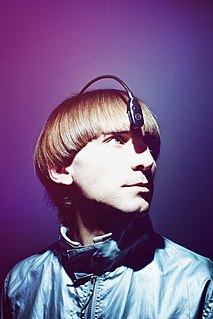A Quote by Immanuel Kant
Related Quotes
For many ages it has been allowed by sensible men, Nihil est in intellectu quod non fuit prius in sensu: That is, There is nothing in the understanding which was not first perceived by some of the senses. All the knowledge which we naturally have is originally derived from our senses. And therefore those who want any sense cannot have the least knowledge or idea of the objects of that sense; as they that never had sight have not the least knowledge or conception of light or colours.
All men naturally desire knowledge. An indication of this is our esteem for the senses; for apart from their use we esteem them for their own sake, and most of all the sense of sight. Not only with a view to action, but even when no action is contemplated, we prefer sight, generally speaking, to all the other senses. The reason of this is that of all the senses sight best helps us to know things, and reveals many distinctions.
If God is not unchanging, then the whole basis of our faith begins to fall apart, and our understanding of the universe begins to unravel. This is because our faith and hope and knowledge all ultimately depend on a person who is infinitely worthy of trust - because he is absolutely and eternally unchanging in his being, perfections, purposes, and promises.
Sensibility... is a direct and particular reaction to the separate and individual nature of things. It begins and ends with the sensuous apprehension of colour, texture and formal relations; and if we strive to organize these elements, it is not with the idea of increasing the knowledge of the mind, but rather in order to intensify the pleasure of the senses.
MOST of the ugliness in the human narrative comes from a distorted quest to possess beauty. COVETING begins with appreciating blessings: MURDER begins with a hunger for justice. LUST begins with a recognition of beauty. GLUTTONY begins when our enjoyment of the delectable gifts of GOD starts to consume us. IDOLATRY begins when our seeing a reflection of God in something beautiful leads to our thinking that the beautiful image bearer is worthy of WORSHIP.




































